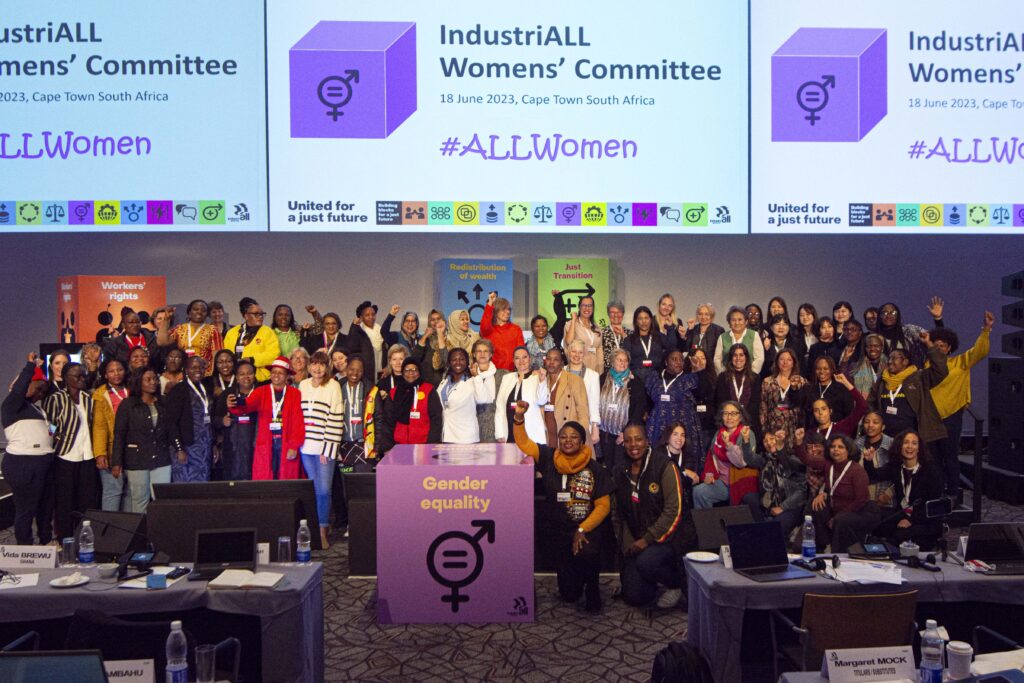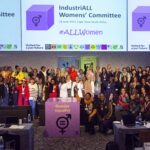19 June, 2023A gender-responsive approach to growing inequalities, strategies in multinational companies, building strong unions, just transition and how feminism can change trade unions were some of the topics raised at IndustriALL’s global women’s committee.
Over 100 women from around the world participated in the meeting on 18 June in Cape Town, South Africa, the first in a week full of meetings leading up to IndustriALL’s Mid-Term Policy Conference.
“We have an important task to fulfil here. We are fighting for gender equality, and we take pride in having strong brothers who stand with us. If we want to make progress we need to increase our knowledge and that is what we are doing here,”
said Hashmeya Alsadawe, IndustriALL Vice-President.
Assistant general secretary Christine Olivier said:
“Feminism is seen in a different light, it is seen as women who want to overthrow men, but we must change this narrative. We are not here to overthrow men, we are here to determine how we include women in building strong unions, how we make sure that women’s needs are attended to in all sectors and companies and we are here to make sure that women are included in the just transition process.”
A session on how feminism can change trade unions was chaired by IndustriALL vice president Rose Omamo.
“When we mention feminism people think people we want to take over from men and this is not the case. Feminism is a word that means to fight domination and inequality,”
said Rose Omamo.
Women in the meeting shared their experiences on feminism and a common denominator was lack of visibility of women in trade unions and in leadership positions and that gender equality is an ongoing struggle. Many women shared their experience as often seen as incapable of leading and in order to achieve a feminist organization everyone must work together.
Professor Akuka O Britwum, an expert on gender and labour from Ghana who made a presentation on how feminism can change trade unions said,
“feminism could help building democracy in trade unions, meaning making these unions legitimate and relevant. We need to bring men in the core of the discussion in order to dismantle patriarchy and toxic masculinity.”
Irati Bañuelos from ELA Spain shared her experience on how her union has been working towards becoming a feminist union.
“The women working in my union wanted to work in a feminist organization. In 2017, we led a participatory diagnosis exercise, and we found that our union has been reproducing the discrimination existing in the society against women. Yes, we had resistance from men, and it has been a long, difficult but interesting process and we found that we need to work differently. We need better recruitment and collective bargaining for women,”
said Irati Benuelos.
Armelle Seby, director of gender and white-collar workers said,
“we need to make sure that we add a gender perspective to the Mid-Term Conference. Trade unions need to collect data to capture the different impact on women and men, of growing inequalities and ongoing transformation in the world of work, and develop gender responsive strategies. We need to extend social protection for women in the informal economy. To promote a gender transformative approach to human rights due diligence to transform discriminatory social norms and we need to make sure companies are accountable. We need to make sure that just transition plans will enable equal opportunity for women and men to access future jobs .”







